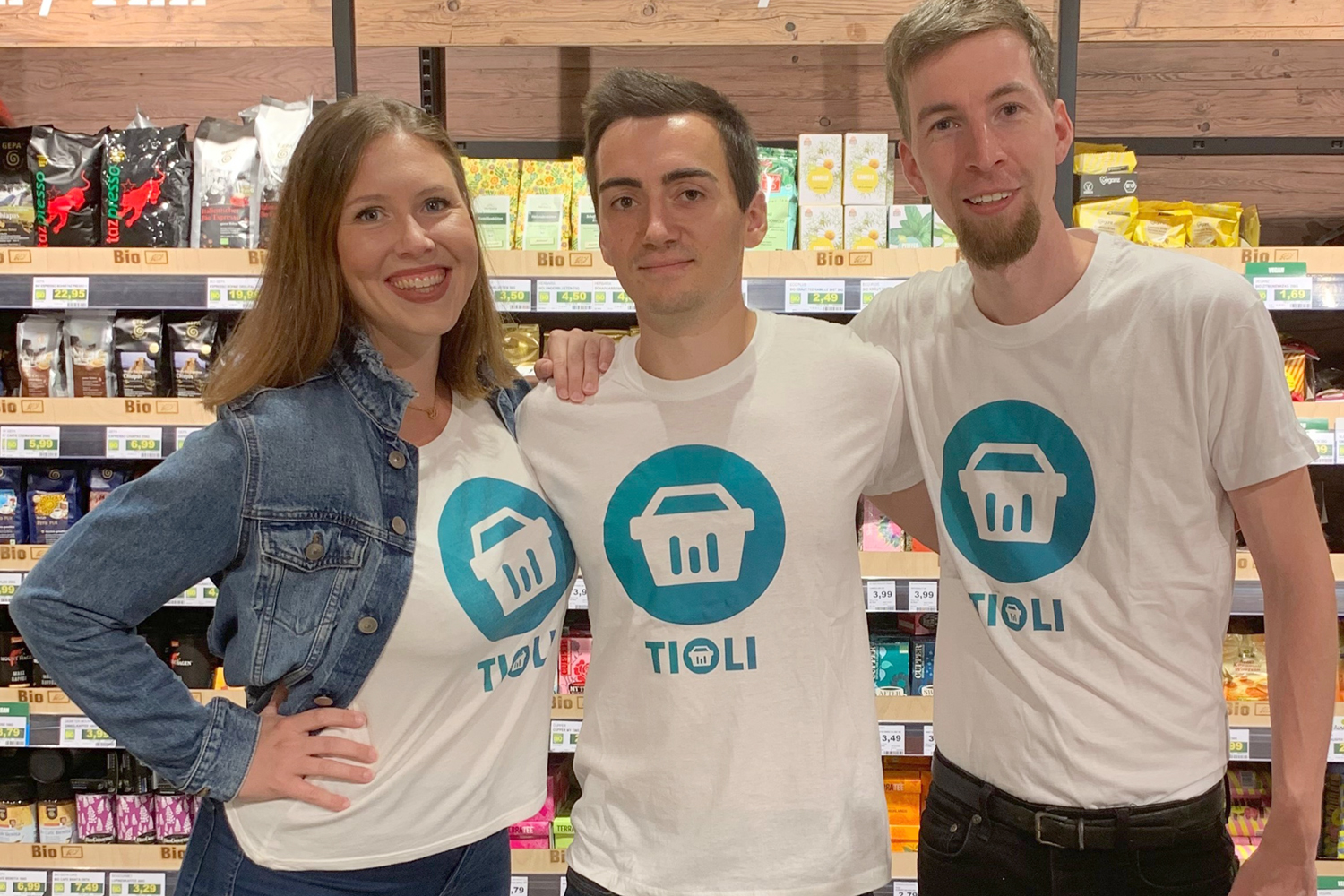Neural Networks Against Food Intolerances From Idea to Startup
“Take it or leave it”, abbreviated: TIOLI, is a start-up developing an app for people with food intolerances. The Technology Transfer Office is currently supporting the founders with their EXIST application. The founding team includes Ira Saric-Ormuz (28), Thomas Kimmel (23) and Alex Schacht (33). Ira had the idea and always wanted to found a company. Anke Bergmann from the Technology Transfer Office at the Technical University of Braunschweig spoke to her.

With their start-up company TIOLI, Ira Saric-Ormuz, Thomas Kimmel and Alexander Schacht (f.l.t.r.) want to make life easier for people with food intolerances. Picture credits: André Zierfuß/Tioli
Are you all students? How did you find each other?
We are a team of three. I come from Croatia and study Entrepreneurship and Innovation Management at Ostfalia. Before that I completed my Master in Business Engineering in Croatia and at the TU Vienna. Alex holds a Master in Computer Science from the TU Braunschweig. He works for a development company and is our main app programmer. Thomas studies physics at the TU Braunschweig in his last master semester. During his studies it became clear to him that he would rather get on the programming track and this is how he came across Alex and me.
Have you always wanted to found a company?
I have always had many ideas for founding a company. That’s why I decided to study entrepreneurship with Professor Reza Asghari. I wanted to get to know other people who also had ideas. People who take visions seriously and don’t just see the risks.
How does Carolo-Wilhelmina support you in your project today?
We are currently working in the Incubator at TU Braunschweig and can use the premises there. This one is well frequented right now. So we have a lot of contact to other founders and there is a lively exchange of information and experience. We receive feedback from a coach who is important when applying for our EXIST start-up grant. The preparation of the application is our main task. Here it is important that we emphasize our functionality of the app and its innovative part, machine learning. Professor Wolf-Tilo Balke from the Institute for Information Systems will be our mentor. It’s great that we have an expert at our side who will support us in the field of artificial intelligence.
About the app: Which problem are you aiming to solve?
People who suffer from a food intolerance are limited in their food choices and potentially insecure. The first challenge is to find out under which intolerances those affected suffer. Traditional nutrition diaries cannot provide this information reliably because the analysis is limited by the doctor’s lack of time and the complexity of the data volume. An additional challenge is that the incompatibilities that occur can vary from person to person despite the same intolerance.
What is your solution?
TIOLI wants to simplify the lives of people with food intolerances. TIOLI is an acronym for “Take It Or Leave It”. Our app gives recommendations which products should be avoided with the different food intolerances, and suggests possible product alternatives. In concrete terms, this means that users scan the barcode of a product while shopping. Based on their profile, they get a simple answer: “TAKE IT” or “LEAVE IT”.
What is innovative about your product?
The user scans the products with their smartphone. After consumption, the user evaluates the products in terms of how well they have tolerated them. Product information, including the ingredients, is also used to optimize the user’s personal profile. From a technical point of view, the personal profile is a neural network that can transfer knowledge about the incompatibilities to new or unknown products. It thus provides a prognosis as to whether the product in question is harmless. An adaptive process is used to improve the learning process, based on the experiences of all users with the same intolerance profile. In the field of image classification, this method has already led to a significant acceleration of the neural network training process and to better results for small data sets.
What advice would you give to other people who want to start a business?
Have the courage to put your idea into practice. Go to start-up events and talk to people who also have ideas and are thinking about starting something. Family and friends don’t always have an entrepreneurial spirit. Often they don’t understand the desire to found a company and want to lead you on a “safe path”: “Don’t do that. You’d better look for a secure job.” But if you see how enthusiastic other founders are and how much fun it is to found a company, then you will also find the courage to found your own company.
